Clean Up Jakarta
Soka Gakkai Indonesia members talk about putting Buddhist philosophy into action by contributing to the local community through Clean Up Jakarta Day, an annual event that brings volunteers together to tackle the city’s waste problem.
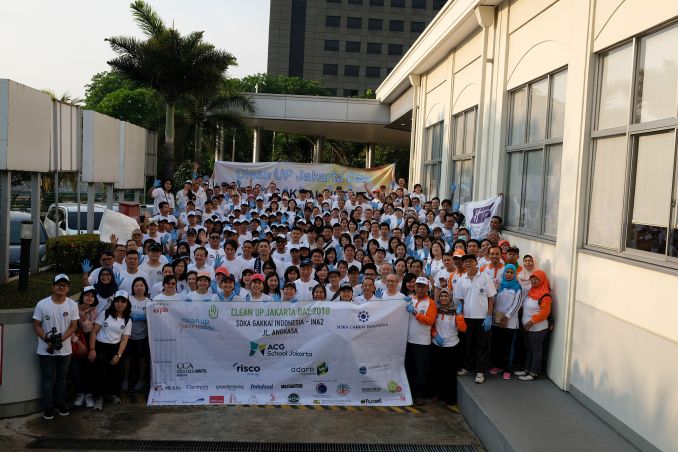
How did Soka Gakkai Indonesia initially get involved in Clean Up Jakarta Day?
Angel Seni Harja:A friend of mine who was involved in Clean Up Jakarta Day asked me one day whether Soka Gakkai Indonesia would like to join the activity. She had a few Soka Gakkai friends and knew that the Soka Gakkai focuses on contributing to society.
I thought this could be a great opportunity to create understanding of the problems in our immediate environment and educate ourselves about the effects of littering and the need for recycling. I proposed the activity to the national leader of Soka Gakkai Indonesia, and it has become an annual activity for us. We invite our neighbors and friends to join us.
This year, it coincided with the first World Cleanup Day, and some 300 Soka Gakkai Indonesia members and friends participated. Together, we collected almost 300 kilograms of trash, both recyclable and nonrecyclable.
How has participating in the cleanup influenced you?
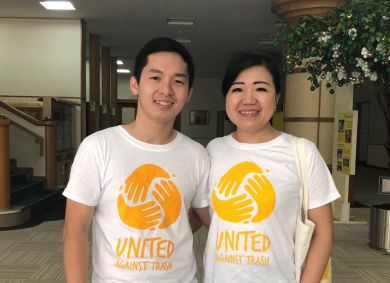
Mario Sastra:I became more conscious not to litter anywhere. Buddhism teaches the oneness of life and its environment—that when we change, our environment also changes. It is important to apply Buddhist teachings in our daily life, so by not littering, I am trying to make Buddhist philosophy live in my daily actions.
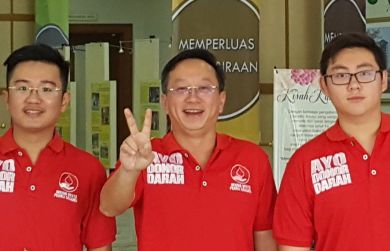
Steven Budiarta:Since being involved in Clean Up Jakarta Day, I care more about the environment, especially the littering issue. Now, there is a feeling of shame about littering, so I don’t throw trash on the street. I also feel upset if I see someone throwing litter from their car. When I see garbage left on the street, my hand automatically picks it up and puts it in the right place.
How did you encourage your friends to join this activity, and how did they respond?
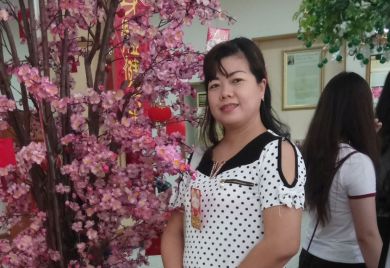
“Lice”:I learned from Soka Gakkai activities to value dialogue, so I talked with my friends and explained how a clean community environment can lead to a clean and healthy life. Their responses were quite positive. We learned together that waste can be recycled by separating organic and nonorganic matter.
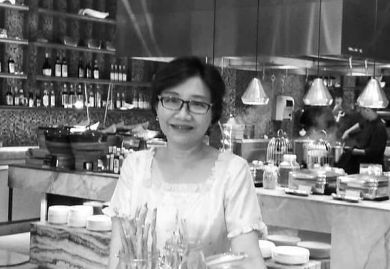
Fenny Juwono:I had dialogue with my friends to deepen our understanding of the waste problem in Jakarta and encouraged them to participate in the cleanup activity together to save our community from environmental damage. People are becoming more aware of the waste problem. We felt a sense of togetherness and excitement participating in Clean Up Jakarta Day, and we enjoyed ourselves.
How has Buddhist philosophy informed your personal approach to environmental issues?
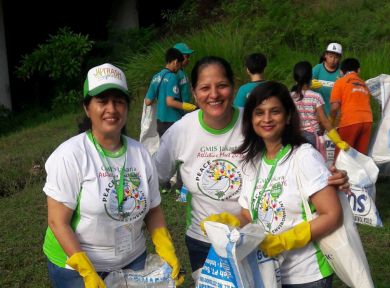
Seema Kadandale:Our Buddhist philosophy teaches that you and your environment are one and inseparable. This tells us that if we want a happy and clean life, then we have to first give ourselves a happy and clean environment. I definitely see a lot of change in myself and others because now I have an awareness of upcycling and degradable and nondegradable waste. Getting others to join this event also gave me a sense of pride.
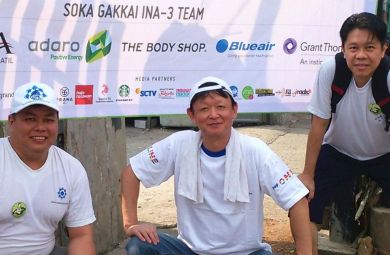
Takayuki Doi:President Daisaku Ikeda writes peace proposals in which he addresses the problems of poverty, education, the environment and war. As we study his proposals during our monthly discussion meetings, we naturally become familiar with those global issues. His proposals raise awareness of environmental problems and encourage us to take action.




